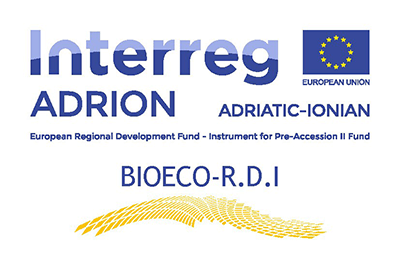Overview of existing EU Regulations in the Bio-Economy sector
One of the latest strategies on EU level concerning bioeconomy is the updated version of 2012 Bioeconomy Strategy published in October 2018. The 2012 Bioeconomy strategy aims to pave “the way to a more innovative, resource efficient and competitive society that reconciles food security with the sustainable use of renewable resources for industrial purposes, while ensuring environmental protection”.
The updated version from year 2018 did note that there are certain adaptations needed, such as renewal of the Industrial Policy, Circular Economy Action Plan and Clean Energy for All Europeans Package (European Commission, 2018). The 2012 Bioeconomy Strategy is one of the main strategic documents on EU level in the context of bioeconomy, yet there are many more policies that are relevant for the bioeconomy (Table 1: EU policies relevant for bioeconomy – European Commission, 2018).
Bioeconomy specific
- Commission communication ‘Innovating for sustainable growth: a bioeconomy for Europe’ (EC 2012a)
Agriculture
- Commission communications: legislative proposals on the common agricultural policy (CAP) beyond 2020 (COM/2018/392 final; COM/2018/393 final; COM/2018/394 final/2)
- Commission communication ‘Thematic Strategy for Soil Protection’ (SEC(2006)620)
Forest-based sector
- Commission communication ‘A new EU forest strategy: for forests and the forest-based sector’ (EC 2013a)
- Commission staff working document `Multiannual implementation plan of the new EU forest strategy’ (EC 2015a)
- Blueprint for the EU Forest-based Industries (SWD(2013)343)
Fisheries, aquaculture and algae
- The Common Fisheries Basic Regulation (EU) No 1380/2013
- Commission communication ‘Blue growth: opportunities for marine and maritime growth’ (EC 2012e)
- Report on the Blue Growth Strategy, Towards more sustainable growth and jobs in the blue economy, SWD (2017) 128 final
- Commission communication ‘Strategic guidelines for the sustainable development of EU aquaculture’ (EC 2013e)
- Joint communication “International ocean governance agenda for the future of our oceans” (EC 2016)
Waste
- See cross-cutting policies (below)
Food and nutrition security
- Commission communication ‘An EU policy framework to assist security developing countries in addressing food security challenges’ (EC 2010e)
- Commission communication Increasing the impact of EU development policy: an agenda for change’ (EC 2011c)
- Commission communication ‘Enhancing maternal and child nutrition in external assistance: an EU policy framework’ (EC 2013b)
- Commission communication ‘ The EU approach to resilience: learning from food security crises’ (EC 2012c)
Energy
- EU Renewable Energy Directive (2009/28/EC)
- Commission communication ‘An energy policy for Europe’ (EC 2007a)
- Commission communication ‘A European strategic energy technology plan (SET-plan) — Towards a low carbon future’ (EC 2007b)
- Commission communication ‘Limiting global climate change to 2 degrees Celsius — The way ahead for 2020 and beyond’ (EC 2007c)
- Commission communication ‘Energy 2020 — A strategy for competitive, sustainable and secure energy’ (EC 2010f)
- Commission communication ‘Energy roadmap 2050’ (EC 2011d)
- Commission communication ‘A policy framework for climate and energy in the period from 2020 to 2030’ (EC 2014a)
- Commission communication: ‘Accelerating Europe’s transition to a low-carbon economy’ (EC 2016k)
- Clean Energy Package (2016)
- Commission communication ‘The role of waste-to-energy in the circular economy’, (EC 2017a)
Bio-based industries
- Commission communication ‘A lead market initiative for Europe’ (EC 2007d)
- Commission communication ‘Preparing for our future: developing a common strategy for key enabling technologies in the EU’ (EC 2009)
- Commission communication: ‘A stronger European industry for growth and economic recovery’ (EC 2012d)
- Commission communication ‘For a European industrial renaissance’ (EC 2014f)
- uture strategy on plastics use, reuse and recycling (EC 2016l)
Environmental protection and Climate Change
- EU Action Plan for Nature, People and the Environment (COM(2017)0198 final)
- EU Biodiversity Strategy (COM/2011/0244 final)
- EU Strategy on adaptation to climate change (COM/2013/0216 final)
Circular economy – Waste
- Commission communication ‘Towards a circular economy: a zero Waste waste programme for Europe’ (EC 2014e)
- Commission communication ‘Closing the loop — An EU action plan for the circular economy’ (EC 2015b)
- Commission communication ‘The role of waste-to-energy in the circular economy’ (EC 2017a)
- Future strategy on plastics use, reuse and recycling (EC 2016l)
- Waste package 2018
- Fertiliser Regulation (Regulation (EC) No 2003/2003)
- A European Strategy for Plastics in a Circular Economy (EC 2018)
Regional policies – Smart specialisation
- Commission communication ‘Regional policy contributing to smart growth in Europe 2020’ (EC 2010g)
- Commission communication ‘Strengthening Innovation in Europe’s Regions: Strategies for resilient, inclusive and sustainable growth (EC 2017)
Research and innovation
- Commission communication ‘Europe 2020 flagship initiative – Innovation union’ (EC 2010a)
Industrial policy
- Commission Communication ‘Investing in a smart, innovative and sustainable Industry- A renewed EU Industrial Policy Strategy’ (COM/2017/0479 final)
The key factors in the area of growth and employment are gathered in the Europe 2020 Strategy that gives the following guidelines to achieve the goals:
- Smart growth conducted from research and innovations
- Sustainable growth from meaningful exploitation of resources and policy of greenhouse gas emission
- Inclusive growth, based on employment, productivity and social and territorial cohesion.
These guidelines are followed in the documents and initiatives such as Digital agenda for Europe, Innovation Union, Youth on the move, Resource efficient Europe, An industrial policy for the globalisation era, An agenda for new skills and jobs and European platform against poverty. Within these initiatives the bioeconomy is addressed as a key element for smart growth and green economy in Europe.
Financial support is one of the most important instruments to enhance the commercialisation of bio-based products and services. EU is a crucial stakeholder in this perspective, since it enables the funding through EU, national and regional strategies for bioeconomy development. Together with other stakeholders it forms a supportive environment for the development of bioeconomy:
- Horizon 2020: Research and Innovation programme that works as a financial instrument implementing the Innovation Union, a Europe 2020 flagship initiative aimed at securing Europe’s global competitiveness
- SET (Strategy Energy Technology) Plan: technological pillar of funding in the fields of energy and climate policy
- Joint-Technology Initiatives (JTIs): public-private partnerships that join industry, research institutions and public institutions to encourage international research projects
- Bio-based Industries (BBI): initiative for public-private partnership to enhance private co-financing investments in bio-industries in Europe, financed from Horizon 2020.
- NER300 is an EU funding program for innovative low carbon demonstration projects in the field of renewable energy sources, specifically for carbon capture and exploitation
- European Investment Bank: an example of financing with loans and bank guarantees from EU intended for small and medium-sized Enterprises (SMEs), regional development, environmental sustainability, innovations, trans-European networks and energy sector.
The EU multiannual financial framework is an important factor for achieving goals in the area of bioeconomy. There are two highlighted programmes that concern bioeconomy:
- COSME
EU programme for the Competitiveness of small and medium-sized Enterprises running from 2014 – 2020, with a planned budget of EUR 2.3 billion. SMEs are the backbone of Europe’s economy, providing 85% of all new jobs. The European Commission aims to promote entrepreneurship and improve the business environment for SMEs to allow them to realise their full potential in today’s global economy. - Horizon 2020
Horizon 2020 is an EU Research and innovation programme that supports and promotes research in European research area. It works as a financial instrument to fund research, technologic development and innovations. The latter are expected to contribute to economic growth and providing solutions for end users. The most important areas for bioeconomy development within this programme are:- health, demographic changes and welfare
- food supply, sustainable agriculture, marine and maritime research and the bio-economy
- safe, clean and efficient energy
- smart, environmentally-friendly and connected traffic
- climate action, efficiency of resources and raw materials
- an inclusive, innovative and secure society.
 Go to the Bioeco R.D.I. website
Go to the Bioeco R.D.I. website


